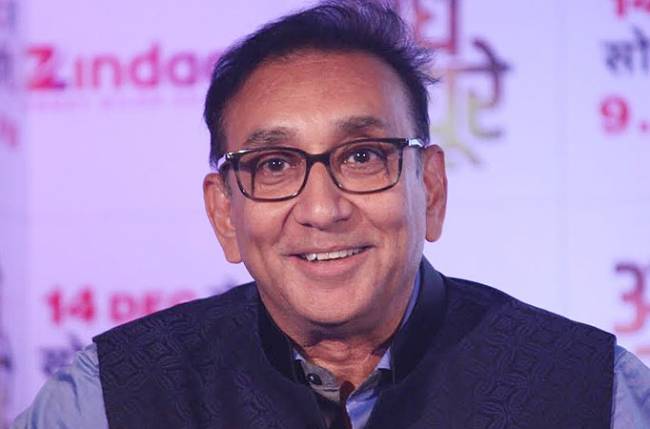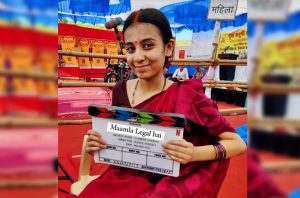Our aim is to bring out relationships that exist in the society: Director/ producer Ajai Sinha

Ajai Sinha is a renowned director / producer who has created new benchmarks in storytelling on Indian Television with every show that he has created. His repertoire of work includes landmark shows like Hasratein, Astitva – Ek Prem Kahani, Justajoo and Ghar Ek Sapnaa amongst many others. Apart from being an outstanding director on television, he has also acted, directed and written for plays on stage.
Having worked in more than 50 plays and TV serials viz., Chunauti, Mahabharat, Banate Bigadate and Yeh Jo Hai Zindagi, he has also extensively worked in Delhi IPTA Sheila Bhatia’s Delhi Art Theatre, Ramesh Mehta’s Three Arts Club, Bombay’s Majma and Alyque Padamsee’s theatre group.
Ajai Sinha has marked his return to Indian Television with Aadhe Adhoore. The show airs on Zindagi every Mon to Sat at 9.50 pm. Besides being the director, his production company, Ananda Films is also producing the series.
Aadhe Adhoore is a story of Jassi who tries to strike a perfect balance between the emotions she feels and the circumstance she finds herself trapped in, even while she is the perfect wife, perfect bahu, and perfect bhabhi.A compelling concept of relationships, betrayal and unrequited emotion, the show turns the spotlight on the new age woman who is in touch with her deeper self, knows who she is and is not apologetic about it.
Do tell us Ajai Ji why was there such a large gap and what did you do in that time?
My break with Aadhe Adhoore was quite interesting. Before my 3-4 year hiatus, I wanted to do something that suited me more, something that interested me and allowed me to bring out something innovative. I wanted to do something where I could explore relationships in detail and bring something interesting to the audiences. My kind of stories was nowhere on TV and realistic stories weren’t being highlighted. So I waited, till I found something and it clicked my mind.
While I was on a break, I focused on music, played the piano, took some trips abroad, and explored my Interests.
Your show on Zindagi – Aadhe Adhoore, what’s new about this show? Most channels today, are taking inspiration from reality and making shows around them. Your show, from what I have come to know, is about a young girl who falls in love with her brother-in-law and this is quite a controversial topic. Tell us more about the show?
The relationship between Jassi and Viren is one aspect of the show and the entire story is a sensitive narrative around their lives and their loved ones. That’s a very broad interpretation and as it forms the background of the show, the story is all about portraying relationships in life that can never be fulfilled. There can be many such examples, like the one this show is based on, but the idea is to depict relationships that do not go the full circle and ask, what if they could run their course, rather than depict them as a crime. How we see the subject is a matter of our perspective.
What do you want to tell your viewers through this show?
We merely wish to portray our story and do so in an interesting manner. There is no specific message in the show, it’s about a girl balancing all her relationships. Viewers will always have varied perspectives on something which isn’t highlighted in everyday life. It’s a mature, sensitive story that surely has viewers hooked on it.
And Ajai ji, tell us what else are you up to now?
I am busy with Aadhe Adhoore for now and our plan is to depict more stories in the future with the Aadhe Adhoore theme. Stories that you wouldn’t call fairy tales. Like a boy and a girl who get married, have children and then one of them passes away. Many more stories can be done interestingly. Our aim remains bringing out relationships that exist in society.
So can we say that the message from this conversation is, people do many things but don’t admit to doing those things that are seen even with a hint of doubt?
Yes absolutely, this is the perspective that exists in society. People will do whatever their heart desires but are often not willing to own up to them.




